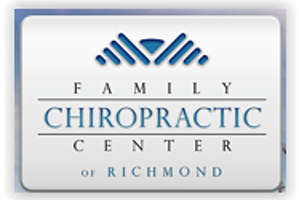Tweaking Your Diet as You Age: A Guide for Healthy Eating
- Dr. Eric Carlsen
- Jul 5, 2022
- 3 min read

With aging comes body changes. Older adults tend to be less active and need fewer calories. At the same time, they also have less stomach acid. So digestion is slowed, making it harder to absorb key nutrients. Medications may also interfere with appetite or digestion.
But you can tweak your diet to adapt to these changes and support healthy aging. “A diet that includes nutrient-rich foods provides energy and supports muscle and bone health, allowing you to stay active and independent,” says Antigone Senn, RDN, a registered dietitian with the Department of Preventive Cardiology at Henry Ford Health.
Tips For Healthy Eating as You Age
Wondering how to maintain a healthy weight and get the nutrition you need? Use the MyPlate plan, developed by the U.S. Department of Agriculture, to guide your meal planning. You’ll find a calorie calculator and recommendations for daily servings of the five food groups: vegetables, fruits, protein, grains and dairy.
Senn recommends including these foods and nutrients to support a healthy, active lifestyle as you age:
· Antioxidants. As a result of normal body functions, your body produces substances called free radicals. These substances can damage healthy cells, potentially leading to heart disease and certain cancers. Research has shown that antioxidants such as vitamin C and E and carotenoids may stop this process. Foods containing antioxidants include whole fruits, vegetables, whole grains, and nuts.
· Calcium and vitamin D. As you age, you lose bone faster than your body makes new bones. Choose dairy or non-dairy products fortified with calcium and vitamin D, leafy greens and nuts to keep your bones healthy.
· Fiber. Constipation is a common side effect of many medications you may take as an older adult. Eat at least 25 grams of fiber per day to support digestive health and relieve constipation. Fiber also helps control blood sugar, lower cholesterol and maintain a healthy weight. Fiber-rich foods include whole-grain pasta and bread, beans and peas, berries, apples and leafy greens.
· Lean proteins. Your ability to absorb vitamin B12 declines as you age. Lean beef, chicken and fish are good sources of vitamin B12. Together with strength training, these foods can also help you maintain strong bones and muscle mass, supporting movement as you age.
· Omega-3 fatty acids. Arthritis affects many older adults, causing painful joints that limit activity. Help reduce joint inflammation with foods rich in omega-3 fatty acids like fish, flax meal and oil, walnuts, cinnamon and turmeric.
· Probiotics. Your gut hosts a community of bacteria, known as the microbiome, which support immune health and digestion. Probiotics contain “good bacteria” to enhance your microbiome. Choose over-the-counter products or probiotic-rich foods like yogurt, kimchi, kombucha or sauerkraut.
As you age, your thirst mechanism diminishes. So, you’ll need to be more purposeful about drinking up to 64 ounces of fluid each day. Carry a water bottle with you to help stay hydrated. Enjoying water-rich foods, such as lettuce, broccoli, watermelon, grapefruit, milk, carrots, yogurt, apples and oatmeal is another great way to get necessary fluids.
It’s also essential to avoid foods high in saturated fat and sodium to boost your heart health and reduce your risk for other diseases. Try these heart-healthy swaps in your recipes without sacrificing flavor.
Prioritize Food Safety
“Older adults have less stomach acid to fight off any bad bacteria that may come from raw, spoiled or undercooked food. That’s why it’s important to pay extra attention to food safety while you’re preparing meals,” says Senn. She suggests following these guidelines for safe food preparation:
· Clean often. Regularly wash your hands, cooking utensils and kitchen surfaces to prevent germs from spreading.
· Keep raw foods separate. Store uncooked eggs and raw fish, meat and poultry separately to prevent bacteria from spreading. Use separate utensils and cutting boards when preparing raw food.
· Avoid bacteria growth. Bacteria can form on food between 40° and 140° F. Follow recommended cooking temperatures and times to ensure food is fully cooked. Chill food promptly after a meal.
See Your Doctor Before Taking Vitamin Supplements
Less stomach acid can also prevent you from absorbing certain vitamins, including vitamins B12 and D, and calcium. Many people turn to vitamin supplements to add more nutrients to their diet. But Senn recommends food as your first source of nutrition.
“Some supplements can interact with over-the-counter or prescription medications. And you could accidentally take more than the recommended dose of certain vitamins. That’s why it’s important only to take supplements under your doctor’s supervision,” she says.
Schedule regular checkups to ensure you’re getting the nutrients you need. “A blood test can serve as a ‘check engine’ review of your diet,” says Senn. “Based on the results, your doctor may suggest adding certain foods to your diet or vitamin supplements that are safe for you.”
Credit: Antigone Senn is a registered dietitian nutritionist who specializes in nutrition counseling and health coaching at Henry Ford Health’s Center for Health Promotion and Disease Prevention.




Comments